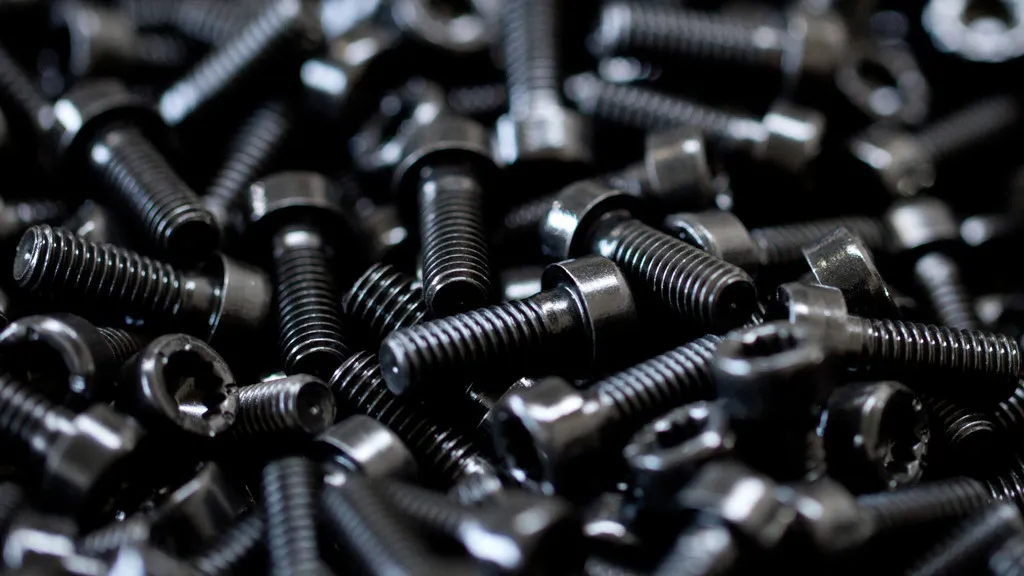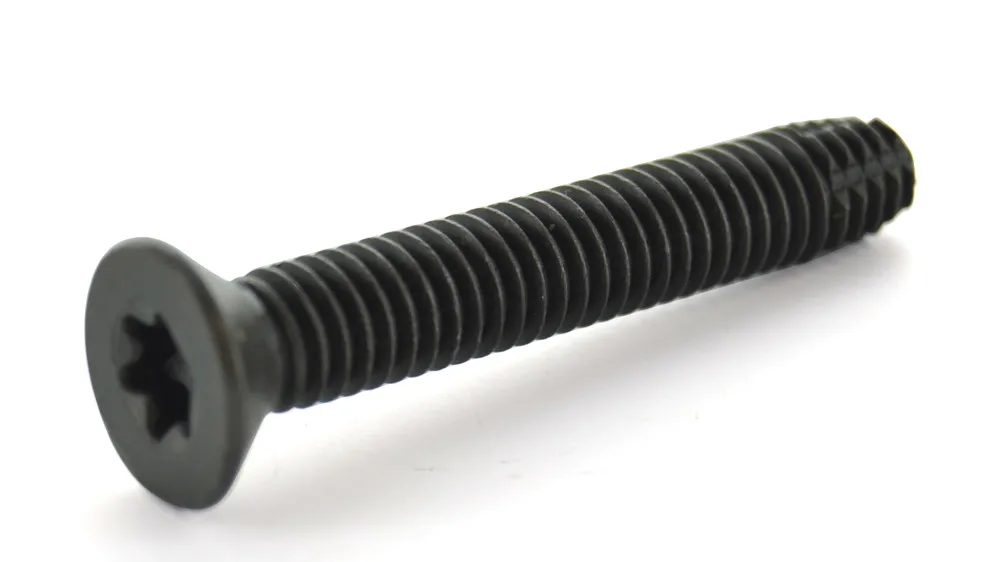Zinc Phosphate is a corrosion resistant coating for metal surfaces, providing a grey-black coating for medium- and low-alloy steels. An adherent layer of zinc crystals produced on steel surfaces by reaction of the surface metal to the phosphate solution. The resulting phosphate coatings are used for corrosion resistance, lubricity, or as a foundation for subsequent coatings or painting.
Phosphate and oil finishes are bulk processed in perforated drums. The fasteners are cleaned in an acid solution. The zinc or manganese phosphate acts as a porous sponge to trap oil. Water-soluble oil or wax is applied to the surface. The phosphate keeps the oil or wax on the surface, which prevents rust. This finish is typically used for internal engine, transmission and non-visible interior fastener applications. Substituting wax for oil reduces residue, making it useful for visible interior applications in cars.
However, phosphate finishes offer limited corrosion protection. The phosphate crystals tend to break down during handling, creating a greasy residue in feeder systems. They do offer consistent frictional properties.
Benefits:
- Improve corrosion resistance by providing a good base for absorbing and retaining rust preventive materials and sealers
- Good lubricity
- Provide and excellent base for holding lubricants and drawing compounds.
- Prolong the life of organic coatings.
- Provide good paint bonding.

